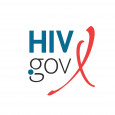KFF recently released two new issue briefs, Medicaid and People with HIV and Medicare and People with HIV, examining the roles of these programs in the lives of people with and at risk for HIV and in our national response to HIV.

HIV.gov
Medicaid, the nation’s public health insurance program serving more than 86 million low-income individuals, and Medicare, the federal health insurance program for people age 65 and older and for younger adults with long-term disabilities, both serve many Americans with and at risk for HIV.
The briefs highlight that:
- Medicaid is the largest source of insurance coverage for people with HIV in the United States, covering an estimated 40% of the nonelderly adults with HIV.
- Medicaid accounted for 45% of all federal HIV spending in FY22 and it is the largest source of public spending for HIV care in the U.S. In FY22, the federal government spent an estimated $13 billion on Medicaid services for people with HIV.
- Over one-third of people with HIV live in a state that has not expanded Medicaid.
- Medicare is the second largest source of Federal financing for HIV care and treatment.
- In 2020, more than a quarter (28%) of people with HIV in the U.S. were estimated to be covered by Medicare.
- The number of traditional Medicare beneficiaries with HIV has more than doubled since the 1990s.
KFF, formerly the Kaiser Family Foundation, is an independent source for health policy research, polling, and journalism. Among the co-authors of both issue briefs is Jen Kates, PhD, KFF’s Senior Vice President and Director of Global Health & HIV Policy, who is also a member of the Presidential Advisory Council on HIV/AIDS.
This blog post was originally published July 12, 2023, by HIV.gov. It is republished with permission.








Comments
Comments